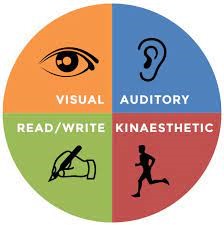 Dear Director,
Dear Director,
My 7-year-old adopted daughter and I fight every time it is time to go anywhere. She takes so long to get and be ready to go that it feels like she is stalling on purpose. My Post Perm worker told me she is a 10-second child in a 1-second world and needs more time to process information. I’m having trouble buying into this idea. After all, my daughter is 7 and very smart and capable. Please share your wisdom.
Signed, Doubtful
Dear Doubtful,
It is probably difficult for someone who is capable, bright and alert, and who processes verbal information quickly to understand that not all people do things that way. Remember that there are many ways we take in information and learn it (reading/writing, auditory, visual, and kinesthetic, or by doing) and each of us has an area of strength, and secondary mode, and a way that is very hard for us to process and learn new things, even simple things. I learned this in college, since I struggled to listen to lecture classes (auditory) and took copious notes (read/write) so that I could follow. But labs, now that is where I really got things (kinesthetic). It is also the hallmark of the best teachers-they teach all the ways, to make sure kids get things in their primary and secondary mode.
quickly to understand that not all people do things that way. Remember that there are many ways we take in information and learn it (reading/writing, auditory, visual, and kinesthetic, or by doing) and each of us has an area of strength, and secondary mode, and a way that is very hard for us to process and learn new things, even simple things. I learned this in college, since I struggled to listen to lecture classes (auditory) and took copious notes (read/write) so that I could follow. But labs, now that is where I really got things (kinesthetic). It is also the hallmark of the best teachers-they teach all the ways, to make sure kids get things in their primary and secondary mode.
The way we take in information impacts how quickly we respond to it. Even with that, some people just need more time for the information to get into their brain, spin around to a place where they can make sense of it, make a decision about how to respond, and then come back with an action or words. It is not a reflection on how smart they are but on how their brains work. And of course there are lots of little side trips that information can take, courtesy of ADHD, trauma, fear, anxiety, etc. So, lots of reasons to be a 10-second child in a 1-second world.
Additionally, when you ask your daughter to get ready to do or go somewhere, make sure she knows where you are going and what is going to happen, and that you are both physically and emotionally ready when it is time to leave. You are in charge of the information and use that control to be ready. But your daughter is still processing the first thing you said when you have one foot out the door. She may need more time to physically be ready and even more emotional time to process the activity, or both. So, my first suggestion is to back it up. Way up. Give her more time and more discussion and more head-space to process things to avoid battles.
 Now the size of that head-space may vary depending on what she is getting ready for. School, where she goes every day, should be something familiar and should take less time. But there is always stuff we don’t know that she may be preparing herself for; that smelly boy on the bus, and the mass of kids between the bus door and the school door that is scary and the reading, which is hard. Could be a lot of things. So, start the night before, talk through the next day, get her clothing out so that decision is made, ever so slowly. Pack up that backpack so we know all is ready. Talk about lunch. Talk about after school. Give her information to process and time to do it with you.
Now the size of that head-space may vary depending on what she is getting ready for. School, where she goes every day, should be something familiar and should take less time. But there is always stuff we don’t know that she may be preparing herself for; that smelly boy on the bus, and the mass of kids between the bus door and the school door that is scary and the reading, which is hard. Could be a lot of things. So, start the night before, talk through the next day, get her clothing out so that decision is made, ever so slowly. Pack up that backpack so we know all is ready. Talk about lunch. Talk about after school. Give her information to process and time to do it with you.
What if you ask her to clean up her room or get ready to go somewhere she wants to go? How about a ten-minute, five-minute, and two-minute warning? How about a timer set to give her time to prepare? How about “lying” about the time you are leaving, so you are not worrying about being late to the doctor’s office while she is figuring out which shoes to wear? If you know she processes more slowly, give her that head-space, that time. And, when there are decisions to be made, immediately narrow them to two (white shoes or red shoes) so there is less to think about and process, and less head-space to use up deciding.
It also helps to remember that you can’t totally control her, but you can accept that she will get where she needs to go, both today and in life, given time-her time, not yours. But, you know you can control your reactions. Deep breathing helps. “Fudging” the time you have helps. Keeping a list of five-minute chores to do around the house so you are not staring at her fuming while she gets her shoes on, as you will be busy, that also helps. These ideas work for rebellious teens and co-parents with their own time zones too. Worry less about the process, focus on the goal. Think about what is best for the parent-child relationship. You will both be happier in the long run.





